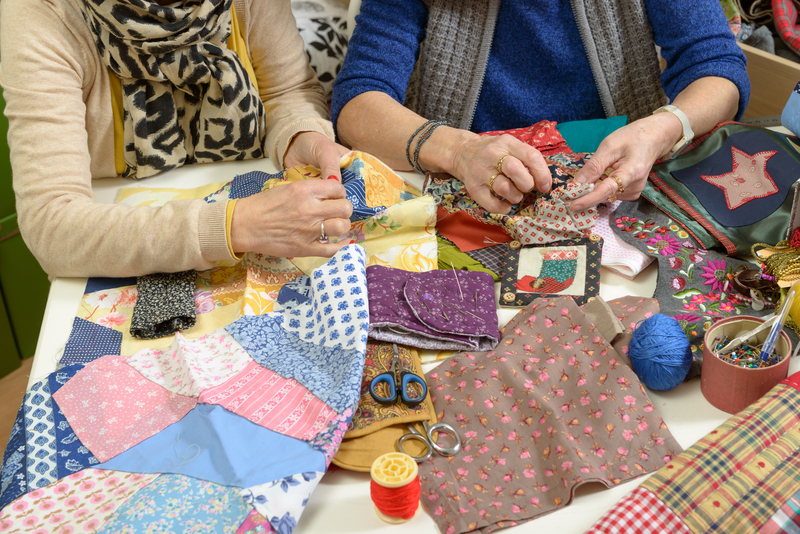Navigating Hoarder Clean Up--Supportive and Non-Judgmental Assistance
Hoarder clean up is more than just tidying a messy room; it is a challenging journey that requires empathy, patience, and expertise. People struggling with hoarding disorder often face emotional pain, embarrassment, and fear, making every step towards a cleaner home a significant victory. This comprehensive guide is your companion for navigating hoarder clean up--offering supportive, non-judgmental assistance tailored to meet both practical and emotional needs.

Understanding Hoarding Disorder
Before assisting with any hoarder clean up process, understanding the root and complexity of the issue is essential. Hoarding disorder goes far beyond clutter; it is a recognized mental health condition.
What Is Hoarding Disorder?
- Chronic difficulty discarding possessions, regardless of their value.
- Excessive accumulation of items that may impede normal use of living spaces.
- Emotional distress and impaired day-to-day functioning due to clutter.
Hoarding often coexists with other mental health concerns like anxiety, depression, or obsessive-compulsive disorder. Any successful hoarder clean up service requires sensitivity to these underlying challenges.
The Importance of a Supportive, Non-Judgmental Approach
Compassion is at the heart of an effective hoarder cleanup process. Friends, family, and professional teams should approach with respect, empathy, and patience.
- Judgment alienates and increases resistance to change.
- Support builds trust and paves the way toward positive transformation.
- Safety and wellbeing should always be top priorities.
Benefits of Non-Judgmental Support in Hoarder Cleanup
- Reduces feelings of shame and embarrassment.
- Encourages proactive decision-making by the individual.
- Creates a safer and healthier living environment for everyone involved.
Steps to Navigate Hoarder Clean Up Supportively
1. Building Trust and Open Communication
Begin with conversation, not action. Sit down with your loved one or client and express your concerns without blame or harshness. Ask questions, listen attentively, and validate their feelings. Trust makes the journey possible.
2. Assessing the Hoarding Situation
- Walk through the living space together.
- Document areas of concern and prioritize those with health and safety risks.
- Determine if there is mold, pests, expired food, or structural damage.
- Note access to exits, electrical panels, and functioning appliances.
3. Setting Realistic, Achievable Goals
Create small, manageable targets. Instead of "clean the entire house," opt for "clear the living room pathway" or "organize this bookshelf." Acknowledge achievements--every step counts.
4. Creating a Support Team
Enlist help from trusted friends, family members, and professional hoarder cleanup services if needed. Assign specific roles such as sorting, cleaning, waste removal, or emotional support. Remember, tackling hoarding is never a one-person job.
5. Establishing Safety Precautions
- Wear masks, gloves, and protective clothing to prevent exposure to allergens or hazardous items.
- Open windows for ventilation.
- Prepare cleaning supplies and arrange for proper disposal of clutter.
- Have a first aid kit on hand in case of minor injuries.
Strategies for Effective and Compassionate Hoarder Clean Up
Sorting and Decision-Making
Together with your team, tackle items in small zones. Use the Four-Box Method:
- Keep
- Donate
- Discard
- Unsure
Encourage the individual to participate in all decisions. Never throw away items without consent unless they pose an immediate threat. Offer gentle guidance and celebrate thoughtful choices.
Tackling Sentimental Items
Emotions often run highest with keepsakes, photos, and letters. Try these approaches:
- Set aside a limited number of "treasure boxes" for the most cherished items.
- Digitize photos and documents for safekeeping.
- Share positive memories but keep the process focused and kind.
Managing Paperwork and Documentation
Old bills, magazines, and documents pile up quickly. Create a simple filing system:
- Sort papers into current, important, archive, and trash.
- Shred sensitive information before discarding.
- Store vital records in labeled folders or a lockbox.
When to Seek Professional Hoarder Cleanup Services
Sometimes, the scale of hoarder clean up or the emotional toll becomes unmanageable. Professional hoarder clean up companies offer expertise, discreet services, and specialized equipment.
Benefits of Hiring Hoarder Cleanup Professionals:
- Experienced teams understand both the practical and emotional dimensions of hoarding.
- Professionals follow strict safety and biohazard protocols.
- Many services offer follow-up support and connections to mental health resources.
Choosing the Right Hoarder Cleanup Company
- Look for providers who highlight sensitivity, confidentiality, and experience.
- Request references and read reviews to assess their reputation.
- Clarify cost estimates, timelines, and included services before starting.
Providing Emotional and Psychological Support
Cleaning is half the battle; healing emotional wounds is the other. Hoarding cleanup involves immense courage on the part of the individual. Honor their journey with ongoing encouragement:
- Connect with mental health professionals specializing in hoarding disorder.
- Consider cognitive behavioral therapy (CBT) or support groups specific to hoarding.
- Celebrate milestones and maintain a positive, future-focused attitude.
Dealing With Setbacks Compassionately
- Avoid criticism or ultimatums; setbacks are normal in the recovery process.
- Encourage small wins and practice forgiveness--progress, not perfection, is the goal.
- Reconnect to long-term aspirations instead of dwelling on momentary failures.
Maintaining Success After Hoarder Clean Up
Developing Healthy Habits and Routines
The best hoarder cleanup results endure when paired with ongoing, supportive routines:
- Schedule regular cleaning sessions and decluttering check-ins.
- Provide organizational tools: bins, shelves, labels, and containers.
- Encourage mindful purchasing and bring-home habits.
- Stay connected to support networks (friends, family, counselors).
Prevention of Re-Accumulation
Educate and empower the individual to recognize and respond to risky behaviors early:
- Watch for new clutter hot spots.
- Practice decision-making about new possessions.
- Celebrate ongoing progress--keep the mood hopeful and future-oriented.

Resources for Hoarder Clean Up Support
Empower yourself and your loved one by tapping into the following organizations and resources:
- International OCD Foundation Hoarding Center--Information and support for hoarding disorder.
- National Alliance on Mental Illness (NAMI)--Peer support and crisis resources.
- American Psychiatric Association--Guidelines and local therapist directories.
- Professional Hoarder Clean Up Services--Look for local companies with compassionate expertise.
Conclusion: Navigating Hoarder Clean Up Together
Navigating hoarder cleanup is a profound act of care and support. By blending practical strategies with heartfelt empathy, anyone can help transform a space--and a life--without stigma or judgment. Whether you are a friend, family member, or part of a professional team, your approach matters. With compassion, collaboration, and expert assistance, brighter, healthier futures are within reach for those impacted by hoarding disorder.
Remember: It's never just about the clutter. It's about dignity, hope, and the promise of a new beginning.